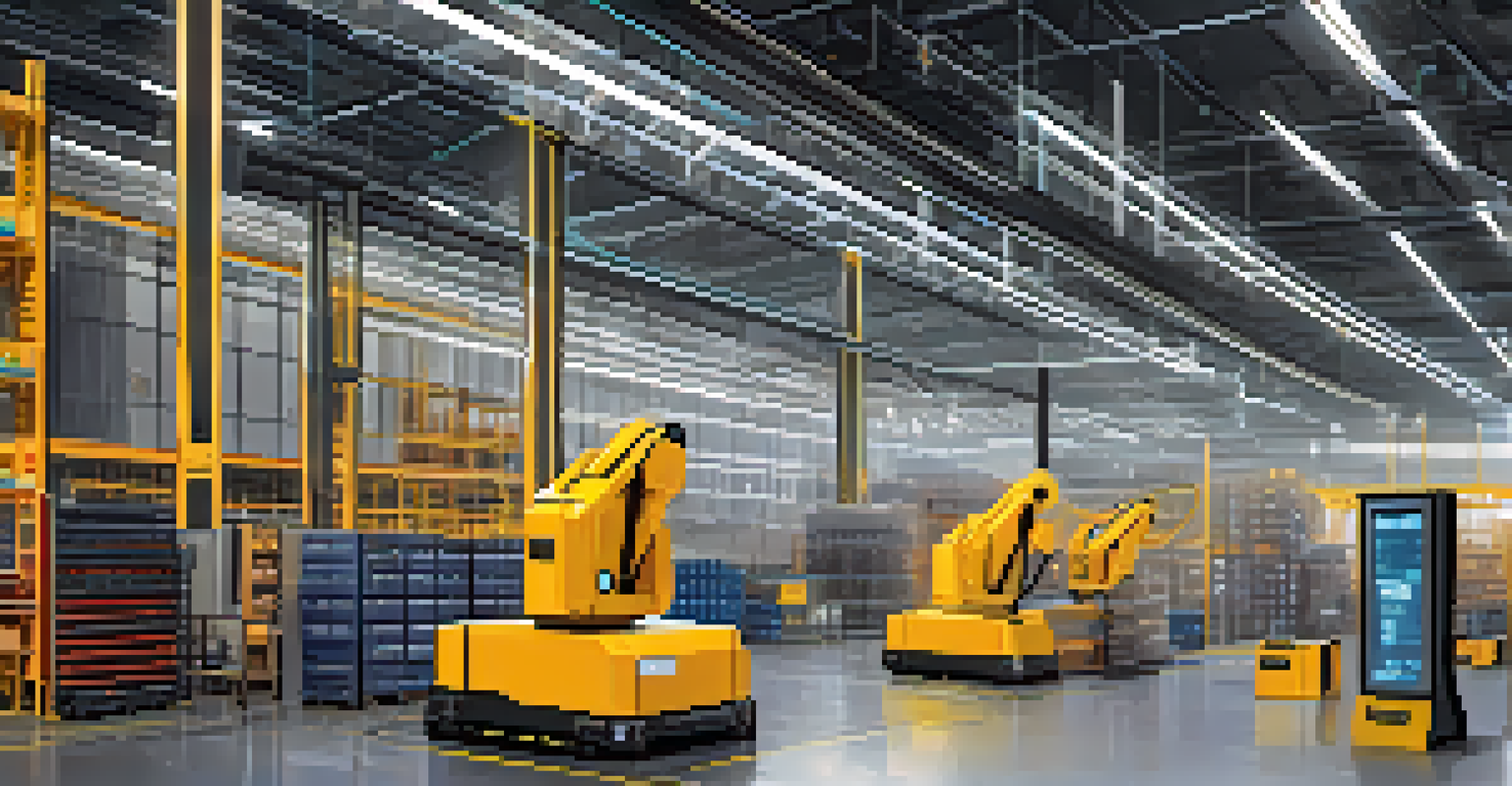Blockchain Solutions for Efficient Supply Chain Management

Understanding Blockchain in Supply Chain Management
Blockchain is a decentralized digital ledger technology that records transactions across multiple computers. This ensures that the recorded transactions cannot be altered retroactively without the alteration of all subsequent blocks. In supply chain management, it offers a transparent and secure way to track products from origin to consumer, enhancing trust and accountability among stakeholders.
Blockchain is the tech. Bitcoin is merely the first mainstream manifestation of its potential.
Imagine a multi-layered cake, where each layer represents a different participant in the supply chain. With blockchain, every layer has access to the same recipe and can verify when their layer is made, ensuring that everyone is on the same page. This transparency minimizes disputes and fosters collaboration among all parties involved.
As businesses increasingly seek to improve their supply chain efficiency, understanding blockchain’s role is crucial. It not only streamlines operations but also builds resilience against disruptions, making it a game changer for industries worldwide.
Key Benefits of Blockchain for Supply Chains
One of the standout benefits of blockchain in supply chain management is increased transparency. All transactions are recorded on a public ledger that all stakeholders can access, allowing for real-time tracking and oversight. This level of visibility helps prevent fraud and ensures compliance with regulations.

Additionally, blockchain enhances traceability, which is vital for industries like food and pharmaceuticals. For example, if a food safety issue arises, companies can quickly trace back through the supply chain to identify the source of contamination, minimizing risk and protecting consumers.
Blockchain Boosts Supply Chain Trust
By providing a transparent and secure platform for tracking products, blockchain enhances trust and accountability among stakeholders.
Moreover, blockchain reduces operational costs by eliminating the need for intermediaries. With smart contracts, transactions can be automated and executed automatically when certain conditions are met, speeding up processes and reducing human error.
How Blockchain Enhances Security in Supply Chains
Security is a top priority in supply chain management, and blockchain significantly enhances it. Each transaction is encrypted and linked to the previous one, creating a chain of records that is nearly impossible to tamper with. This means that sensitive data remains safe from cyber threats and unauthorized access.
The blockchain technology is a groundbreaking technology that has the potential to disrupt entire industries.
Think of blockchain as a digital vault, where every transaction is locked away with its own unique key. Only authorized users can access and alter the information, ensuring that the integrity of the data is maintained throughout the supply chain.
This heightened security not only protects businesses but also builds consumer trust. When customers know that their purchases come from a secure and transparent supply chain, they are more likely to remain loyal to the brand.
Real-World Applications of Blockchain in Supply Chains
Many companies across various sectors are already leveraging blockchain technology to improve their supply chains. For instance, Walmart uses blockchain to track the origin of its food products, enabling quick responses to food safety issues and ensuring product freshness.
Another example is De Beers, which employs blockchain to trace the journey of diamonds from mine to market. This helps confirm that the diamonds are ethically sourced, providing assurance to consumers about their purchases.
Enhanced Security with Blockchain
Blockchain's encryption and linking of transactions create a tamper-proof record, safeguarding sensitive data from cyber threats.
These real-world applications illustrate the versatility of blockchain and its potential to address challenges that have long plagued supply chains, from inefficiencies to ethical concerns.
Challenges of Implementing Blockchain in Supply Chains
While blockchain offers numerous benefits, implementing it in supply chains is not without challenges. One significant hurdle is the integration of blockchain with existing systems. Companies must ensure that their current processes can seamlessly connect with blockchain technology, which may require substantial investment.
Moreover, there is a need for industry-wide standards to ensure interoperability between different blockchain systems. Without these standards, different companies may struggle to communicate effectively, leading to fragmentation in the supply chain.
Lastly, there is the issue of resistance to change. Many companies are accustomed to traditional methods, and shifting to a new technology like blockchain can meet with skepticism. Education and training will be essential to ensure that all stakeholders are on board.
Future Trends in Blockchain for Supply Chain Management
The future of blockchain in supply chain management looks promising, with trends indicating a shift towards greater adoption and innovation. As more companies recognize the value of blockchain, we can expect to see broader integration across various industries, from manufacturing to retail.
Additionally, advancements in technology, such as artificial intelligence (AI) and the Internet of Things (IoT), are likely to enhance the capabilities of blockchain. For instance, combining IoT sensors with blockchain can provide real-time data on the condition of goods in transit, adding another layer of transparency and efficiency.
Real-World Blockchain Applications
Companies like Walmart and De Beers are successfully using blockchain to improve traceability and ensure ethical sourcing in their supply chains.
As these trends evolve, companies that embrace blockchain will not only improve their operational efficiency but also gain a competitive edge in the marketplace.
Getting Started with Blockchain Solutions
For businesses looking to implement blockchain solutions in their supply chains, the first step is to conduct a thorough assessment of their current processes. Understanding the specific pain points and inefficiencies will help identify areas where blockchain can add the most value.
Next, companies should engage with blockchain experts or consultants who can provide guidance on best practices and implementation strategies. Collaborating with technology partners can also facilitate the integration of blockchain into existing systems, ensuring a smoother transition.

Finally, ongoing training and support for employees will be crucial to maximize the benefits of blockchain. By fostering a culture of innovation and adaptability, businesses can fully leverage the potential of blockchain technology in their supply chain operations.